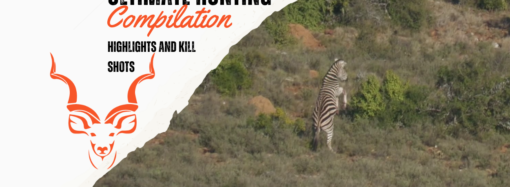Discover the intricate process of lion hunting in the Kalahari, exploring tactics, professional hunters’ roles, and the importance of ethical practices in this ancient tradition.
Lion hunting is surrounded by a mystique that tells us how man became dominant and nature took offence. In the vast and challenging expanse of the Kalahari Desert, lion hunting is not merely a sport but an intricate process that demands mastery of the terrain, a deep understanding of lion behaviour, and the skilled use of specialized equipment. This article delves into the various tactics employed in lion hunting in the Kalahari, the essential role of professional hunters, and the ethical considerations that underpin this age-old practice.
Kalahari Terrain: A Hunter’s Paradise
The Kalahari Desert, with its seemingly endless stretches of sand, presents an ideal landscape for lion hunting. The sand is not difficult to read, making it easier to track lions by their spoor—clear imprints left in the dust. This characteristic significantly enhances hunts’ efficiency and success rate, reducing the time and effort required to locate lions.
The desert is sectioned off by roads to create hunting blocks. This systematic layout allows hunters to cover large areas methodically, ensuring no lions are missed. The vast and diverse terrain of the Kalahari provides a unique and challenging hunting ground that tests hunters’ skills and endurance.
The Art of Tracking
Tracking lions in the Kalahari is both an art and a science. Experienced trackers, who are intimately familiar with the land and lion behaviour, play a crucial role in this process. They can read spoor and other signs that indicate where lions have been. A common technique involves dragging camelthorn trees behind a Land Cruiser on stretches of road. This method wipes out old tracks, ensuring that only fresh spoor is visible, which is vital for effective tracking.
Once fresh tracks are identified, trackers and hunters follow them for hours, sometimes covering great distances, to locate the lions. The ability to interpret these signs accurately is a testament to the trackers’ expertise and knowledge of the Kalahari’s unique ecosystem.
Equipment and Safety Measures
Hunting lions requires specialized equipment and stringent safety measures. The minimum calibre rifle suitable for hunting lions is a .375, providing the necessary power for a clean kill and minimizing unnecessary suffering for the animal. Hunters must be highly trained and proficient in using such weapons to ensure a humane and effective hunt.
Safety is paramount in lion hunting. Professional hunters accompany hunts as a crucial safety measure. These experts have extensive experience in tracking, shooting, and managing dangerous situations, providing an additional layer of security. Their presence not only enhances safety but also ensures adherence to ethical hunting practices and legal regulations.
Types of Lions in the Kalahari
The Kalahari is home to various types of lions, including male and female lions, or lionesses. The hunting experience and economic value of lion hunting can vary significantly based on the lion’s sex, size, and quality. Male lions, especially those with impressive manes, are highly prized and can fetch significantly higher prices than females.
Male lions with substantial manes are often sought after as trophies, while lionesses are usually hunted for population control or to address issues within a pride. The economic dimension of lion hunting is substantial, with hunting permits and licenses reflecting the challenges and rewards associated with hunting different lions.
The Role of Professional Hunters
Professional hunters are indispensable in lion hunting. Their years of experience and expertise are invaluable assets during the hunt. These professionals are responsible for leading the hunt, using their knowledge of the land and lion behaviour to guide hunters through the Kalahari.
Professional hunters assist in tracking and spotting lions, identifying the best opportunities for a clean shot. They ensure that safety protocols are followed and that all participants are prepared for potential dangers. Moreover, they uphold the highest standards of ethical hunting, ensuring that only suitable lions are targeted and that legal requirements are met.
Why the Kalahari?
The Kalahari Desert offers a unique and challenging environment for lion hunting. The sand makes it easier to track lions, significantly increasing the efficiency and success rate of hunts. The presence of a variety of species, including lions’ natural prey, creates a sustainable ecosystem that supports healthy lion populations.
Lion hunting in the Kalahari is conducted with great care to regulate the population and maintain ecological balance. This approach ensures that lion hunting contributes to conservation efforts and the long-term sustainability of the species.
The Economic Dimension of Lion Hunting
Lion hunting in the Kalahari is not just a sport but a vital economic sector. Hunting permits are issued based on the species and quality of the lions, with male lions boasting black manes commanding top prices. The income generated from lion hunting supports local economies and wildlife conservation efforts.
Revenue from lion hunting funds anti-poaching activities, habitat regeneration programs, and community development projects. Hunters play a crucial role in ensuring the long-term sustainability of wildlife and providing economic benefits to local communities.
The Thrill of the Hunt
The thrill of lion hunting in the Kalahari is unparalleled. Tracking a lion for days, navigating the harsh desert terrain, and finally taking the perfect shot is an exhilarating experience. The Kalahari’s unique landscape and the challenge of hunting such a formidable predator draw hunters from around the world.
Each hunt is a demonstration of patience, skill, and endurance. The Kalahari’s harsh conditions test the limits of even the most experienced hunters, making each successful hunt a testament to their abilities.
Ethical Considerations in Lion Hunting
Ethical considerations are paramount in lion hunting. It is crucial to conduct hunts ethically to ensure sustainability and animal welfare. This involves controlled culling, fair chase principles, and maximizing economic benefits for local communities.
Controlled culling involves selectively hunting fitter lions to maintain genetic diversity. Fair chase principles ensure that hunting is conducted in a manner that respects animals, humans, and the environment. Ensuring that the economic benefits of hunting are passed on to local communities helps promote positive attitudes towards conservation.
The Future of Lion Hunting in the Kalahari
The future of lion hunting in the Kalahari hinges on improved regulation and conservation efforts. Key areas of focus include better monitoring and assessment, increased community engagement, and international collaboration.
Enhanced monitoring and data collection will provide accurate population assessments, informing sustainable hunting practices. Increased involvement of local communities in conservation efforts will promote sustainable practices and economic adaptation. International collaboration will bring together resources, knowledge, and expertise to support conservation efforts.
Conclusion
Lion hunting in the Kalahari is a tradition rich in adventure and skill. The unique terrain of the Kalahari, combined with the expertise of professional hunters, makes for a challenging and rewarding hunting experience. Understanding the intricacies of lion hunting in the Kalahari deepens one’s appreciation for this ancient practice.
Responsible lion hunting plays a crucial role in maintaining ecological balance and supporting conservation efforts. With proper governance and adherence to ethical principles, lion hunting in the Kalahari can continue to contribute to wildlife management and sustainable populations in the future.
FAQs
- What makes the Kalahari an ideal location for lion hunting?
The Kalahari’s sandy terrain makes it easier to track lions, significantly increasing the efficiency and success rate of hunts. The region’s diverse ecosystem supports healthy lion populations, making it a prime location for sustainable lion hunting.
- Why are professional hunters important in lion hunting?
Professional hunters bring extensive experience and expertise, ensuring safety and ethical hunting practices. They guide the hunt, help track and spot lions, and ensure that all safety protocols are followed.
- What equipment is essential for lion hunting in the Kalahari?
A minimum calibre rifle of .375 is required for lion hunting, ensuring a clean and humane kill. Safety measures and proper training in handling such weapons are crucial for a successful and ethical hunt.
- How does lion hunting benefit local communities?
Revenue from lion hunting supports local economies and funds wildlife conservation efforts, including anti-poaching activities and habitat regeneration programs. This economic benefit helps promote sustainable practices and positive attitudes towards conservation.
- What ethical considerations are involved in lion hunting?
Ethical lion hunting involves controlled culling to maintain genetic diversity, adhering to fair chase principles, and ensuring that the economic benefits of hunting are passed on to local communities. These practices promote sustainability and animal welfare.
- What is the future outlook for lion hunting in the Kalahari?
The future of lion hunting in the Kalahari depends on improved regulation, better monitoring and assessment, increased community engagement, and international collaboration. These efforts will ensure sustainable hunting practices and the long-term conservation of lion populations.


















Leave a Comment
You must be logged in to post a comment.